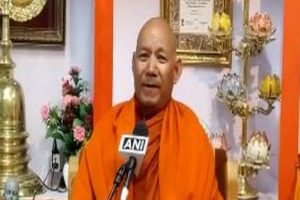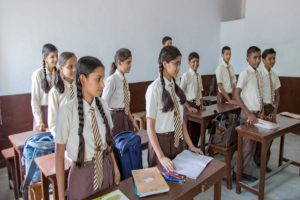At a three-hour meeting with visiting Chinese Foreign Minister Wang Yi, External Affairs Minister S Jaishankar today firmly told him that a resolution of the ongoing military stand-off in Eastern Ladakh and the restoration of peace and tranquility in border areas were prerequisites for normalisation of Sino-Indian relations.
Wang, who arrived here last night on a one-day visit amid tensions in bilateral ties over the Ladakh face-off, also had a meeting with National Security Adviser (NSA) Ajit Doval. He is the first top Chinese leader to visit India since the border row erupted between the two neighbours in Eastern Ladakh in April 2020.
At a media briefing after his meeting with Wang, Jaishankar said the two ministers addressed a broad and substantive agenda in an open and candid manner. ”We discussed our bilateral relations that have been disturbed as a result of Chinese actions in April 2020.”
The two ministers noted the progress made by the two sides at 15 rounds of senior commander level talks to resolve the face-off. ”The current situation is a ‘Work in Progress’ obviously at a slower pace than desirable…This needs to be taken forward since the completion of the disengagement (at LAC) is necessary for deescalation,” Jaishankar said.
He told the Chinese minister that the national sentiment in India was that the friction in border areas could not be reconciled with a normal situation. ”We still have ongoing friction areas although we have made progress in resolving some friction areas, including Pangong Tso. Our discussions today was on how to take this process forward,” he added.
”No, our relationship (with China at present) is not normal, given the presence of a large number of troops in contravention of the 1993, 1996 agreements,” Jaishankar said when asked how he would term the current state of ties between the two countries.
He said he had told the Chinese minister that the relationship between their two nations must be based on three principles: mutual respect, mutual sensitivity and mutual interest.
Asked if the Chinese side extended an invitation to Prime Minister Narendra Modi for the BRICS Summit China is scheduled to hold this year, Jaishankar said Wang did refer to it and said Beijing would like to see the participation of all leaders at the meeting.
India also took up with Wang his statement made in Islamabad at the OIC meeting in which he raised the Jammu and Kashmir issue. ”I explained to him why we found that statement objectionable. I told him that we hope China would follow an independent policy in respect of India and not allow its policies to be influenced by other countries and other relationships,” the Indian minister added.
On the Ukraine conflict, the two countries called for an immediate ceasefire and felt that diplomacy and dialogue should be given priority.
He said he also took up strongly the predicament of Indian students studying in China who have not been allowed to return by Beijing citing COVID restrictions. ”We hope China will take a non-discriminatory approach since it involves the future of many young people,” he added. Minister Wang assured him that he would speak to the relevant authorities on his return on this matter.
At his meeting with the Indian NSA, Wang invited him to China to take forward the mandate of Special Representatives (SRs) of the two countries on the boundary dispute. Doval responded positively to the invitation, stating that he could visit after immediate issues between the two countries were resolved successfully.











